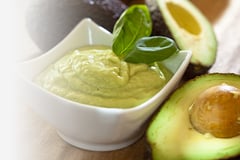Presenter: Klaus Buckendahl
Klaus Buckendahl
Analytical Sciences Liaison, Advanced Analytical Europe, Merck KGaA, Darmstadt, Germany
Klaus Buckendahl received a degree in engineering from the FH Münster University of Applied Science in Germany, majoring in instrumental analysis. He started his career in the technical service at Sigma-Aldrich providing support for the Supelco® line of analytical products. Over the last 20+ years, he held various positions within the company including Product Specialist and Technical Marketing Manager for Sample Preparation in Europe, among others. Currently he works as an Analytical Science Liaison at Merck in the analytical chemistry business unit.
Sponsors:


 Sample Preparation for Fatty and Complex Food Matrices
Sample Preparation for Fatty and Complex Food Matrices